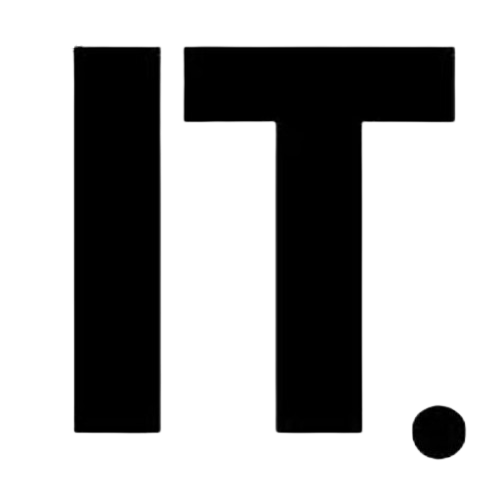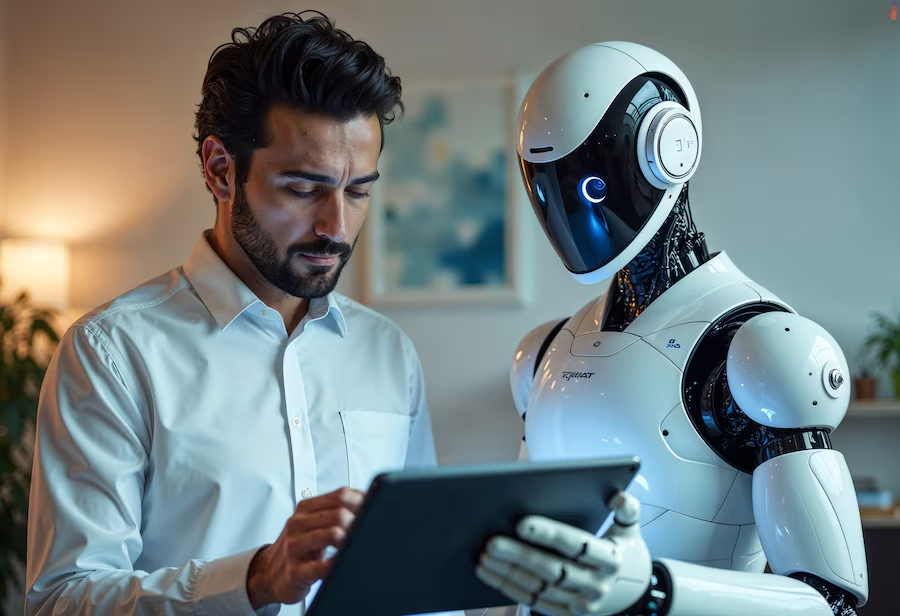Contents
- 1 Will AI Really Take Our Jobs? Understanding the Future of Work
- 2 The Big Fear: Machines Replacing Humans
- 3 The Other Side: AI Can Work With You
- 4 The Human Edge: What AI Can’t Touch
- 5 The Skills Shift: Time to Level Up
- 6 The Negative: Inequality and Access
- 7 Will AI Take Our Jobs?
- 7.1 8 AI Job FAQs
- 7.1.1 Which jobs are at the greatest risk with AI?
- 7.1.2 Can AI replace creative jobs like writing or art?
- 7.1.3 Will AI create new jobs?
- 7.1.4 How can I protect my job from AI?
- 7.1.5 Is AI a threat to low-skill workers?
- 7.1.6 Can AI Ever Be As Good As Humans at Everything?
- 7.1.7 How Quickly Will AI Change the Job Market?
- 7.1.8 Should I Be Worried About AI Taking My Job?
- 7.2 Related Articles
- 7.1 8 AI Job FAQs
Will AI Really Take Our Jobs? Understanding the Future of Work
Imagine this: it’s the morning, you are having your cup of coffee, and scrolling through your feed, and you see the same story over and over again, AI is going to take our jobs. Should you be worried? Could AI take your job? Here is a chance to look at your personal risk and see the whole picture. It’s a calculator to see the full job risk picture, but here we try to see the whole thing in a combined way. Unpacking it from hysteria, anxiety, and the chances there are.
The Big Fear: Machines Replacing Humans
For the last few decades, automation has relieved a portion of the work. Have you self checked your groceries? Have you proceded to automated systems to improve your network? Replaced customer service with automation? Many jobs that tills, factories and even a few customer service automation systems have replaced cashiers. Why wouldn’t it make you nervous? Studies are predicting tens of millions of jobs could vanish and they are not exaggerating. Work and cash have been replaced by a machine and it is cheap, fast and with hardly any emotion. A machine doing your work, ever so efficiently and at a fraction of the cost, that is the ever present fear.
But let’s turn this around for a minute. Maybe you are a writer, a teacher, a truck driver, or a nurse. And you are wondering, Can AI really do my job? The answer is, potentially. AI gives the biggest benefits with predictable, repetitive, or data-heavy work. Things like analyzing data, sorting emails, or building parts. Given this, it is easy to see why questions like What jobs will AI replace by 2030 and How many jobs will AI replace by 2050 are becoming popular. If a big part of your job is work like that, then yes, there is a chance that AI will replace some parts of it. But there is no need to panic for now.
The Other Side: AI Can Work With You
Picture this instead: instead of stealing your job, AI is your new sidekick. Have you ever used a tool to help you brainstorm or edit your work? You are using AI, and it is there to help you, not replace you. For AI, tasks like drafting or suggesting new patterns for creatives, quickly analyzing medical records for a doctor, grading homework for a teacher, and then giving them more time to work with their students are all big helps. This is not about being replaced; it is about being amplified.
Think about history. When cars came around and started replacing horse-drawn carriages, blacksmiths didn’t just disappear; they adapted too. Jobs change, and AI might just make us do the same. The World Economic Forum has pointed out that while some roles are automated, new ones like AI trainers, data analysts, or ethics specialists are created. It’s reasonable to ask How many jobs AI will potentially create, because new industries and roles are emerging alongside the ones that are disappearing.
The Human Edge: What AI Can’t Touch
This is what really matters: AI is smart, but it’s not us. It can mimic creativity, but can it feel the rush of a breakthrough? It can process data, but can it comfort a friend? Jobs that AI can’t replace are those that lean on empathy, intuition, or complex decision-making, like counseling, leadership, or even comedy. Sure, it might write a joke, but will it read the room?
Think about your work. What’s the part you love most? For most people, it’s the human stuff, connecting with others, solving messy problems, or dreaming up wild ideas. These are the things AI struggles with the most. It’s why we’ve got an edge. Sure, machines can take the grunt work. But the soul of what we do? That’s ours to keep.
The Skills Shift: Time to Level Up
Okay, let’s get practical. If AI is reshaping the job landscape, what do we do about it? Simple: adapt. Skills like coding, critical thinking, and emotional intelligence are gold right now. Ever thought about dabbling in tech? Coursera and Khan Academy can get you started. But even if tech isn’t your thing, you can still stay ahead of the game by improving your human skills like communication, creativity, and adaptability.
I’ve seen friends change careers like this. One went from a retail job to managing an online store using AI to monitor trends. Another person used AI to modify algorithms for a small business. You’re not starting from scratch, just making small adjustments to what you already know. Does that sound scary? Perhaps, but it’s also exciting.
The Negative: Inequality and Access
The downside is that not everyone is going to benefit from this shift. If you’re stuck in a low-skill job and don’t have training opportunities, the rise of AI will feel like a slap in the face. People in rural areas are falling behind compared to those living in tech hubs and not everyone has the money to be retrained for a new job. Negative impacts of job AI are also real and that’s why some people are pushing for new policies like universal training to combat those issues.
Will AI Take Our Jobs?
My opinion is that it will change the jobs we have. Some will disappear, others will change, and new jobs will be created. It’s going to be a change, not a complete loss. The important thing is to be curious and open to new opportunities. This is a chance to change old patterns and we should take it.
Look at AI as a tool, not a boss. It’s up to you, a worker, a dreamer, and all of us together, to decide how we use it. When you see the next doomsday headline about AI, just breathe. We’ve got it all under control.
Next read: Effective Job Search Websites: A Personal Guide
8 AI Job FAQs
Which jobs are at the greatest risk with AI?
Data entry, assembly line work, and basic customer service are the most at risk. Jobs with repetitive tasks are the most vulnerable. AI loves predictability, so anything routine is on the chopping block.
Can AI replace creative jobs like writing or art?
Not fully. AI can help with drafts and designs, but the human spark will always rule creation and emotion.
Will AI create new jobs?
For sure! New jobs like AI developer, AI ethicist, and machine learning specialists are here. Just like always, new tech will create new jobs.
How can I protect my job from AI?
Upskill! Focus on the things that machines will always stink at, like empathy, creativity, and complex problem-solving. It also helps to learn some tech basics.
Is AI a threat to low-skill workers?
It can be. Low-skill, repetitive tasks are the jobs automations will hit the hardest. That’s why there needs to be reskilling and support.
Can AI Ever Be As Good As Humans at Everything?
Probably not. AI is good at certain tasks, but it doesn’t understand things like emotions or morals. It doesn’t have the totality that humans possess.
How Quickly Will AI Change the Job Market?
It already is, but the speed is different depending on the industry. Manufacturing moves quickly while education takes longer.
Should I Be Worried About AI Taking My Job?
Not worried, but instead prepared. Always learn new things and be ready to change, and you will be ahead of the tide instead of getting pulled under.





